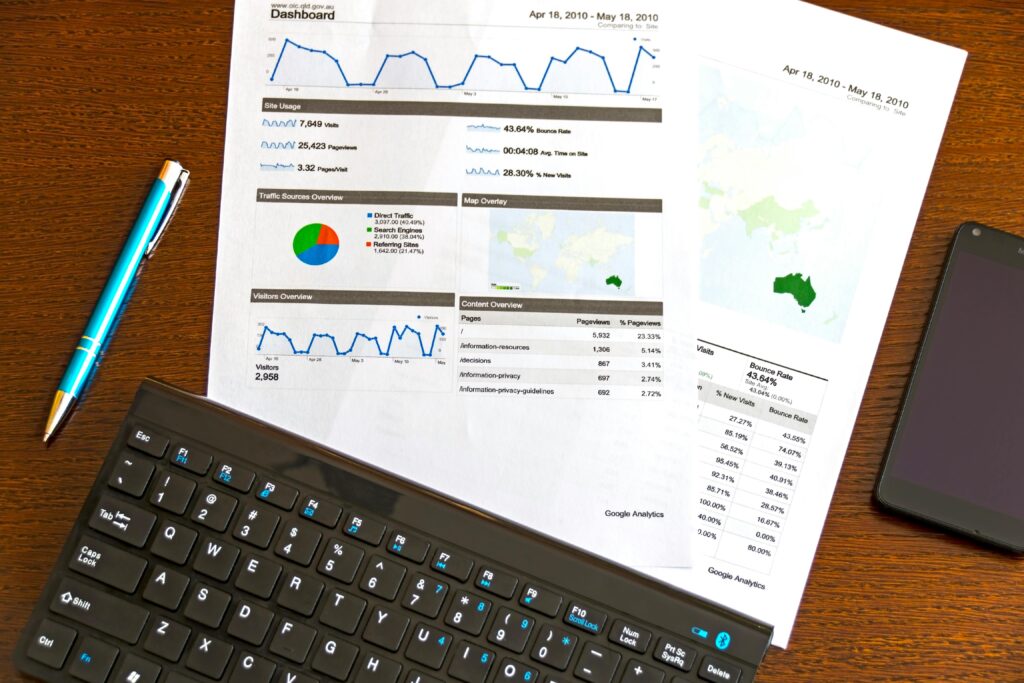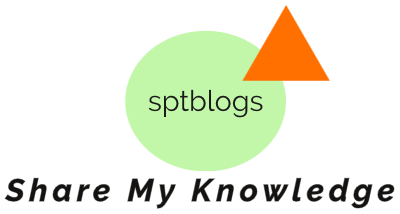Microsoft Access: Best of Its Versatile Business Uses
Around three-quarters of all businesses use database management systems to help simplify their workload. Because it is so powerful and rich in features, the most preferred is Microsoft Access It enables businesses to better manage their data and make intelligent choices.
It offers the convenience of use along with sophisticated tools. It’s an essential tool for companies of all sizes. Managing data well can help a business succeed, and this article will cover how Microsoft Access can be used professionally.
Key Takeaways
- It will turn out to be a powerful database management system that can help businesses streamline their operations
- The advanced features and abilities for database and business applications are offered by Microsoft Access.
- It enables organizations to develop tailor-made business applications and maintain intricate data
- It offers enhanced data analysis and reporting tools
- It is a business growth solution for both small and large businesses
- It can serve to build tailored solutions for business applications and database administration
Microsoft Access: What is It, and Why to Use it in Modern Business
Here we use it as one of the best Database management systems. It offers features to assist businesses in managing and analyzing their data. It’s good for customer relationship management, inventory, and finances.
It essentially helps organizations capture, structure, and look up data efficiently. Businesses seeking to gain insight into their data and make better decisions rely heavily on this. From simple to complex systems, it supports all types of applications.
What Sets Microsoft Access Apart
But of all the alternatives: It is very easy and flexible. Its intuitive interface helps businesses maintain databases, regardless of their technological skills. Additionally, it integrates nicely with other Microsoft products, so it’s a good option for those already in the Microsoft ecosystem.
Main Features And Functionality
Key functions of MicrosoftAccess include database creation and management, data processing, and report generation. It includes tools for creating custom forms and reports. This is why features are essential in allowing businesses to customize their database system for their specific purposes.
These features can help businesses maximize their use of it. Improved data governance and optimization of the decision-making process. It provides them with an edge within their industry.
Introduction to Creating Microsoft Access Databases

It is simple, ABC to use for a person with basic knowledge. First, you will have to design how all the pieces will fit together. It is a user-friendly interface that is good for business.
Following are the steps to create a database:
- Defining tables and their relationships
- Creating forms for data entry
- Create reports made for data analytics
MS Access has many features related to business applications. It provides query and report generation, as well as data validation. This makes it ideal for building bespoke databases.
Here is the table that represents the primary features that can be used for database building:
- Tables: store data in a structured format
- Forms: input and edit data
- Reports: analyze and visualize data
- Queries: extract specific data from the database
Factors for a Business Database Design
Building a business database requires a strategic approach. A relational database is utilized to handle and allow for the analysis of data. We set the tables, forms, reports, and queries in database design.
Tables are a base of a database, which keeps data in an organized way. Usually, it is used when you want to change data in such a way that you want to manage data efficiently. From that, it allows data to be viewed in a way that is useful to open up the operations of the business
Essential Elements in Database Design
- Tables: a way to store the data in a structured way
- Forms: input and edit data
- Please note that can only be organized reports: data and visualize
- Queries: pull specific data from the database
Understanding these components is critical to building a strong database for a business. Database design matters enormously for decisions and for success.
Best Practices for Designing a Database
A good database can be built by following best practices. Data normalization, bucketing tables, and drilling down tables. These steps will help you build a database that scales as your business grows.
| Component | Description |
| Table | Store data in structured format tables. |
| Forms | Input and edit data |
| Reports | Analyzing and visualization of data |

Optimize Business Processes with Tailor-Made Forms
Its custom forms are a great way to streamline aspects of your business. They find applications in automating tasks, improving data entry, and boosting efficiency. By tailoring forms to the unique requirements of a business, data gathering and organization becomes optimized.
Using custom forms in Microsoft Access can help you get many benefits. This involves a host of benefits such as better data accuracy, boosted productivity, and better user experience. Custom forms can include input validation to ensure users enter data correctly. They can also automate repetitive tasks, freeing staff for more critical tasks.
It offers many editing tools and features to create custom forms for businesses.
These include:
- Drag-and-drop form design
- Working with dates and times in a privacy-minded way
- Integration with other functions, such as tables and queries
Businesses can design forms tailored to their requirements utilizing these features. This simplifies operations and improves efficiency.
All in all, custom forms in Microsoft Access are a meal ticket for companies looking to optimize their processes and efficiency. Custom forms help automate processes, ensuring the data collected is accurate and enhancing the experience for both users and companies. This, in turn, leads to business success.
Robust Reporting Capabilities for Business Intelligence
The Microsoft Access has several report-oriented features. These contribute to creating dynamic reports and visualizing data. They are integral for business intelligence, enabling organizations to make informed decisions and expand.
Users can generate reports from the data that are important to notice. This consists of metrics, trends, and insights. They can visualize data with the help of charts, graphs, and tables.
It has simple and flexible reporting tools. Yes, reports can be customized according to the user’s needs. They can monitor sales trends etc (customer behavior, inventory level, etc.).
It is also convenient for sharing reports. They include email and PDF export. Reports can thus be delivered quickly to stakeholders and team members.
Creating Dynamic Reports
The process of creating dynamic reports in Microsoft Access is easy. Users initially select their data source – perhaps a table or query. After they select the report type tabular or summary
Then they’re able to customize the report. They can implement fields, and filters and utilize data visualization tools, such as charts and graphs.
Data Visualization Options
There are many ways to visualize the data in it. Graphs, tables, and charts can be utilized by users. Such tools guide and structure complex data into simple comprehensibly refined information.
For instance, with a chart, users can visualize sales over time. Or a chart to show customer behavior.
Automated Report Distribution
Microsoft Access makes easy options available for the automatic sharing of reports. Reports can be sent via email or exported as PDFs. Reports can also be scheduled at certain times, such as daily or weekly, or they can be sent on demand.
This is a time-saver and allows for reports to get to the proper people. It’s a smart way to keep everyone in the loop.
| Report Type | Description |
| Tabular Report | A report containing data presented in a table |
| Summary Report OR Summary | Report of Data and gives key insights |
| Chart Report | A report that presents data visually through charts or graphs |
Seamless Integration with Other Microsoft Tools
Advantages of Microsoft Access: MS Access integrates well with other Microsoft tools. This makes them more cost-efficient and productive. It has meaningful connections with applications such as Excel, Word , and Outlook.
Benefits of MicrosoftAccess Integration with Different Tools: For example, it simplifies data sharing. It gives a lift to the reporting and analysis.
- Improved data sharing and collaboration
- Enhanced reporting and analysis capabilities
- Increased productivity and efficiency
With the help of Microsoft Access, we can share databases with Excel to perform better analysis of the data available. This facilitates businesses in making intelligent decisions. Using MS Access mentioned SharePoint will also save and increase performance.
Microsoft Access alone cannot counter the resilience of a company. It can do things such as manage customer relationships or track inventory. The combination of Microsoft Access with other tools makes it a full solution.
Microsoft Access Combined with other Microsoft Tools is the Key to Success. It serves the purpose of ensuring that businesses are able to meet their objectives and remain competitive. MS Access allows enterprises to build a dynamic system tailored to their requirements.
Threat Mitigation and Data Security Features
The security features and data protection methods of Microsoft Access help keep business data secure. Security features such as password protection and encryption can be used to protect users’ data.
One such feature is user access controls. This allows admins to define who can view or edit data. Microsoft Access has a backup and recovery. This saves users if something goes wrong to retrieve the data.
Key Security Features
- Protect and Encrypt Your Passwords
- Access and permissions controls on users
- Backup and recovery solutions
These Security features and data governing practices protect the data securely. Microsoft Access data is a powerful and secure place to manage business data. It includes user access controls and encryption to prevent unauthorized access.
Data Protection Measures
| Measure | Description |
| Backup and Restore | Automated recovery and backup solutions |
| Data Encryption | However, encrypting sensitive data so that it is not accessed by unauthorized entities. |
| User Access Controls | Users’ permissions and access levels |
More Advanced Features to Update Your Database
As the business grows, it is necessary for a database that can grow with it. Microsoft Access has advanced features like database scaling and multi-user access. These help you manage lots of data and work with many users, perfect for any business size. Database scaling and multi-user access are advanced features present in Microsoft Access. This allows you to handle large amounts of data and work with multiple users, suitable for any size of business.
MS Access is a nice tool for multi-user access. This allows many users to simultaneously work on the database without corrupting the data. This is really helpful for teams working together on projects.
So, MS Access has some advanced features that help your database to be quick and efficient. You may implement data compression, indexing and query optimization. These tools allow your database to work smoothly as your business becomes larger.
Best Practices for Performance Optimization
- Regularly backing up your database to protect against data loss
- The best practices for optimized database design
- Using indexing and data compression to Free up storage
These features and performance optimization techniques allow your MS Access database to be scaled and will grow with your business! It is a robust and durable way to handle your data, regardless of the size of your organization.
Final Thoughts: Getting the Most Out of Access for Business
MS Access is an efficient medium for all business sectors. It assists in optimizing operations and enhancing data analysis. This results in improved success. It also works well with other Microsoft tools and has robust security features.
In order to maximize MS Access, businesses must learn its very essence. They design efficient databases and create custom forms and reports. This allows companies to work in a precise manner and make better decisions.
MS Access is a solid investment for business firms. It improves database management while opening new pathways for growth. This way, businesses can remain competitive and achieve long-term success.
FAQ
MS Access in business applications! What is MS Access?
Even Though MS Access is a very good tool for managing databases, it assists in handling and recording data efficiently. Ideal for businesses that want to streamline and get insights from their data.
How is MS Access Different from Other Databases?
MS Access includes unique features that set it apart. It provides tools for data storage, reporting, and analysis. That is why it is great for companies to work on their data.
What are the essential components for business database design in MS Access?
Tables, forms, reports, and queries are some of the key components. Tables are for data, forms for input, and edits. Reports are used to analyze and visualize data, while queries are used to extract specific information.
How to use forms, customized in MS Access, to boost business?
- Replace default data entry screens with custom forms in MS Access to automate tasks.
- They enhance efficiency.
- Custom forms allow businesses to customize user experience and enhance productivity.
Front-End of Microsoft Access (MS Access)What are the Powerful Reporting Features of MS Access for Business Intelligence?
Any reporting features are quite strong in MS Access. It generates visualizing reports and data. With these features, businesses can gather business intelligence and make the right decisions.
How does MS Access work with other Microsoft tools?
MS Access integrates smoothly with Microsoft tools such as Excel, Word, and Outlook. This makes it more useful. So it makes business processes seamless and functional.
What are the MS Access security features and the measures for data protection in MS Access?
MS Access is secured with strong security features. It also provides user access controls, data encryption, and backup options. This protects the privacy of your business information.
What advanced features are available in MS Access for scaling your database?
Preparing your information is vital to work your data into MS Access. Multi-User Access Management Ways to Enhance Performance They are used to improve the functioning of your database.

